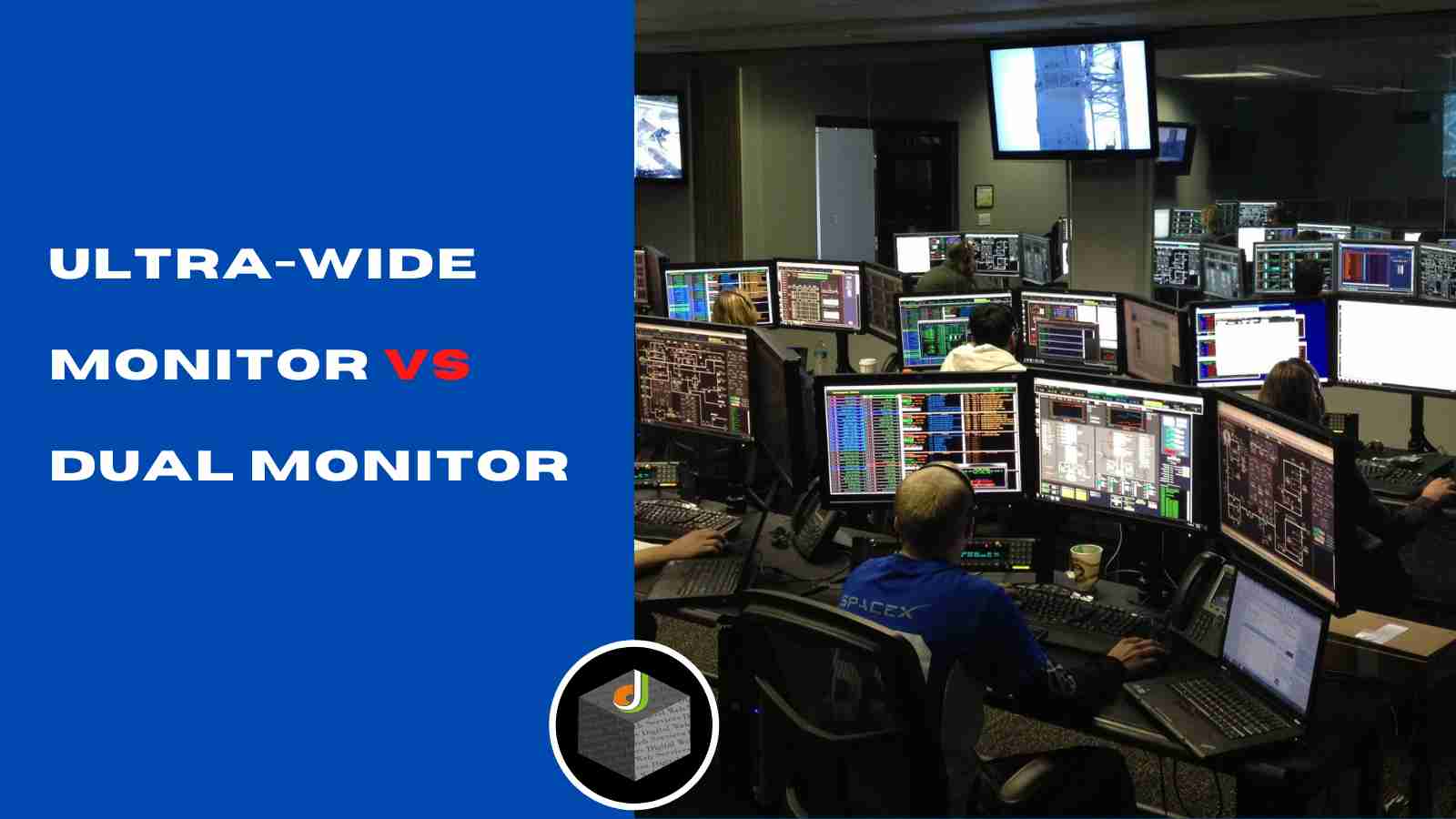
The debate over dual and ultra-wide monitors has been going on for quite a while now. However, deciding between the two can depend upon many different factors. Other specifications such as refresh rate, panel type, size and resolution etc. are also to be taken into account before making the final decision. This article aims to provide you with all the necessary information required for deciding on your next display.
How Do You Define a Dual Monitor Setup?
In simple terms, a dual monitor setup can be defined as two monitor screens comprising of a 16:9 aspect ratio that are put side by side to extend screen real estate as opposed to just one. However, as said by Dusan from VSS Monitoring’s top choices, the resolutions of both monitors don’t need to be the same, one can be a 1080p monitor whereas the other can have a 1440p display.
How Do You Define an Ultra-wide Monitor Setup?
If explained, Ultra-wide monitor setup comprises of single monitor that has a 21:9 aspect ratio which is wider than a usual monitor that has a 16:9 aspect ratio. Ultra-wide monitors can easily be distinguished from the traditional monitors due to the aspect ratio.
Why Choose an Ultra-Wide Monitor Setup Over a Dual Monitor Setup?
- The Bezel Gap
Even though dual monitors tend to extend the screen space by huge amounts, the biggest drawback of using them is the gap that is created between bezels on both of the screens. You won’t have to deal with this gap if you switch to an Ultra-Wide Monitor setup.
- Window Management
Those individuals who are comfortable with managing windows on a dual monitor have been provided with similar functionality in the ultra-wide monitor setup. This feature is called a windows snap, it allows to snap windows to different portions of the screen hence making multiple windows management an easy task.
- Consistency
Talking about consistency, a single ultra-wide monitor has numerous benefits over dual independent screens. Firstly, a single ultra-wide screen will eliminate any possibilities of fluctuations in uniformity and colours that could arise in a dual monitor setup. This is quite beneficial for photographers and videographers as it could deal efficiently with the inconsistencies that occur during the editing process.
- Resolution and Screen Size
Generally, individuals who own a dual monitor setup don’t have the monitors of the same size or the same resolution. Even though it is quite possible to use two different monitors in dual monitor setup, it can tend to get pretty annoying when you want to move things from one screen to another. This can cause problems as the size of that thing would have to be adjusted accordingly.
The Verdict
Although both Ultra-Wide and Dual Monitor Setups can boost your editing productivity, ultra-wide monitors have much more life-changing capabilities and features that cannot be matched by a traditional dual monitor setup. It all comes down to personal preference but looking at what the ultra-wide monitor setup offers, switching to it would definitely be worth it.
Digital Web Services (DWS) is a leading IT company specializing in Software Development, Web Application Development, Website Designing, and Digital Marketing. Here are providing all kinds of services and solutions for the digital transformation of any business and website.










